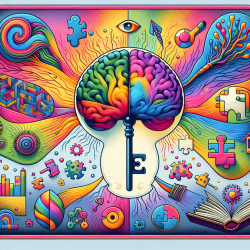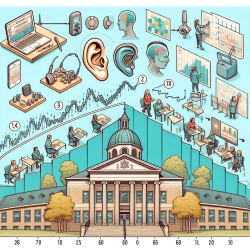Introduction
As practitioners dedicated to improving the lives of children with attention-deficit hyperactivity disorder (ADHD), we are always on the lookout for evidence-based strategies that can make a significant impact. A recent study, "Working memory training restores aberrant brain activity in adult attention-deficit hyperactivity disorder" by Salmi et al., offers promising insights that can be leveraged to enhance therapeutic outcomes. This blog explores the study's findings and discusses how these can be applied in practice.
Understanding the Study
The study conducted by Salmi et al. is groundbreaking as it provides the first randomized controlled trial to investigate the modulation of brain activity through working memory (WM) training in adults with ADHD. The researchers utilized functional magnetic resonance imaging (fMRI) to assess brain activity in 44 adults with ADHD compared to 18 healthy controls. Participants with ADHD underwent training on an adaptive dual n-back task or an active control task to determine the effects of WM training on brain activity.
Key Findings
The study revealed several critical findings:
- WM training led to significant modulation in the frontoparietal (FPN) and salience networks (SN), which are critical for cognitive control and attention.
- There was a notable decrease in brain activity during trained tasks and an increase during untrained tasks, indicating different neural mechanisms for trained and transfer tasks.
- The training restored some aberrant brain activities in ADHD participants, aligning them closer to the healthy control group.
Implications for Practitioners
For speech-language pathologists and other practitioners, these findings underscore the potential of WM training as a therapeutic tool. Here are some practical steps you can take:
- Integrate WM Training: Consider incorporating adaptive dual n-back tasks into your therapeutic repertoire to enhance cognitive control in children with ADHD.
- Monitor Brain Activity: While direct fMRI may not be feasible, observing changes in attention and cognitive control during therapy can provide indirect insights into brain activity modulation.
- Encourage Further Research: Stay informed about ongoing research in WM training and its applications. Encourage collaboration with research institutions to explore new therapeutic avenues.
Conclusion
The study by Salmi et al. provides a compelling case for the use of WM training in restoring brain activity in ADHD, offering a promising avenue for improving therapeutic outcomes. By integrating these insights into practice, practitioners can contribute to more effective interventions for children with ADHD.
To read the original research paper, please follow this link: Working memory training restores aberrant brain activity in adult attention-deficit hyperactivity disorder.










